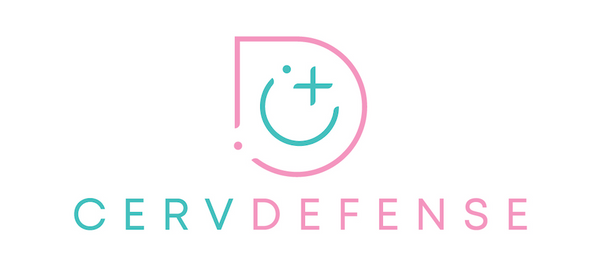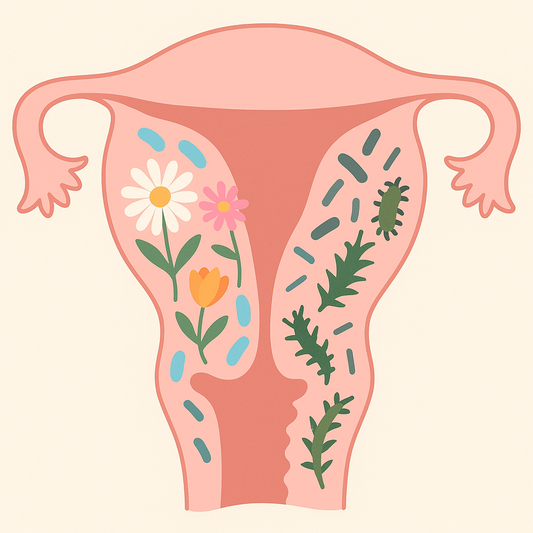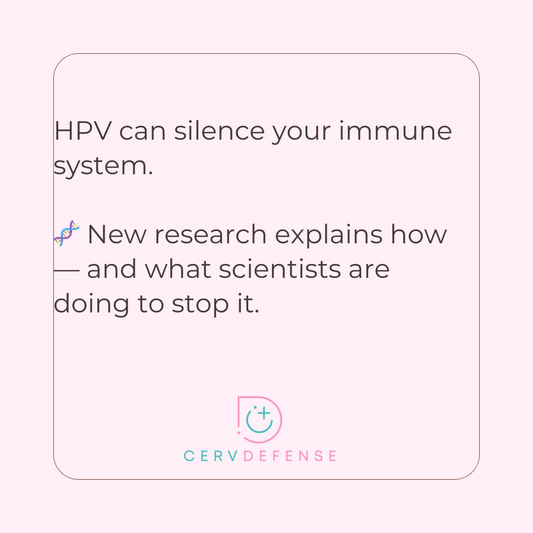
Cervical Health and Overall Well-being: Why You Can't Supplement Your Way Out of a Bad Diet
Share
Supplements are a great way to boost your nutrient intake and fill in any gaps in your diet. However, it's important to remember that supplements can't replace a healthy diet. This is especially true when it comes to maintaining good cervical health and overall reproductive health.
If you're consuming a lot of processed foods, sugary drinks, and unhealthy fats, taking supplements won't make up for the damage you're doing to your body, including your cervix. Here are some reasons why you can't supplement yourself out of a bad diet:
Supplements Don't Contain All Nutrients
Food contains a variety of nutrients that work together to support good health, including a healthy cervix. Supplements may contain some of these nutrients, but they don't contain all of them. For example, certain vitamins and minerals crucial for cervical cancer prevention are best absorbed from whole foods.
Food Contains Other Beneficial Compounds
In addition to nutrients, food also contains other beneficial compounds, such as antioxidants and phytonutrients. These compounds help protect your body from disease, including cervical dysplasia and cervical cancer. Supplements don't typically contain these compounds.
Supplements Can Be Harmful if Taken in Excess
Some supplements can be harmful if taken in excess. For example, taking too much vitamin A can cause toxicity. It's important to talk to your doctor before taking any supplements to make sure you're taking the right dose and that they're safe for you, especially when it comes to reproductive health.
The Importance of a Healthy Diet
To improve your health, the best thing you can do is to eat a healthy diet rich in fruits, vegetables, whole grains, and lean protein. This also includes getting regular cervical cancer screenings and considering HPV vaccination for HPV prevention. Limiting processed foods, sugary drinks, and unhealthy fats is crucial for maintaining a healthy cervix and overall reproductive health.
The Damage of Eating Processed Foods, Sugar, and Alcohol
Processed Foods: Processed foods are high in unhealthy fats, sugar, and salt, which can lead to weight gain, obesity, heart disease, stroke, type 2 diabetes, and some types of cancer. These health issues can indirectly affect cervical health by weakening the immune system and increasing inflammation.
Sugar: High sugar intake can lead to weight gain, obesity, type 2 diabetes, heart disease, liver disease, and tooth decay. These conditions can compromise your body's ability to fight infections, including HPV, which is linked to cervical dysplasia and cervical cancer.
Alcohol: Alcohol consumption is linked to liver disease, heart disease, stroke, cancer, and mental health problems. Even moderate alcohol consumption can increase the risk of health problems, impacting your overall well-being and cervical health.
Conclusion
While supplements can help fill nutritional gaps, they are not a substitute for a healthy diet. Eating a balanced diet, getting regular cervical cancer screenings, practicing safe sex, and considering HPV vaccination are crucial for maintaining cervical health and overall reproductive health. If you are concerned about the damage that eating processed foods, sugar, and alcohol can do to your health, it is important to make changes to your diet and lifestyle.
By focusing on whole foods and a healthy lifestyle, you can support your cervical health and overall well-being more effectively than by relying solely on supplements.



